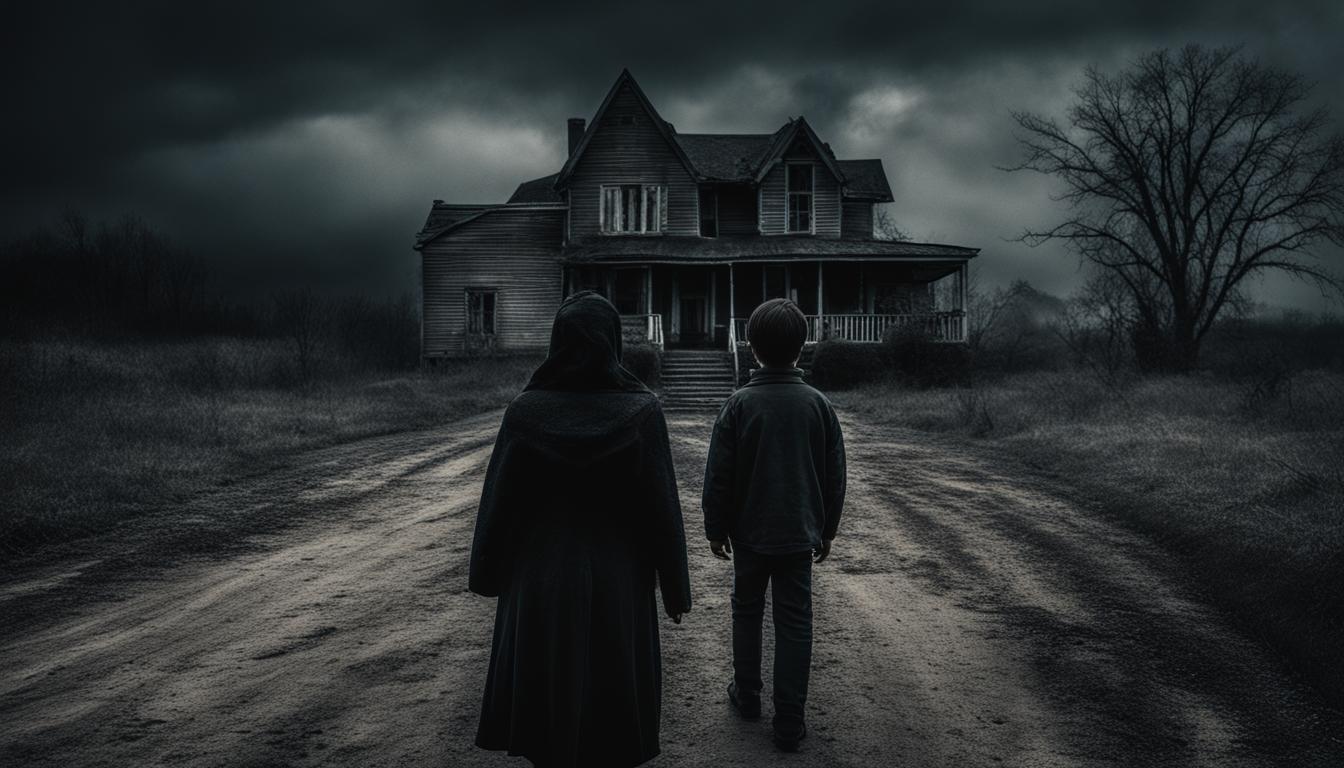If you’re a Stephen King fan, you won’t want to miss out on the psychological depth and intense storyline of his novel, “Rage.” Luckily, we have a hassle-free download option for the PDF version of this captivating work. With the rage by Stephen King PDF readily available, you can easily immerse yourself in this gripping tale of teenage rebellion and the dark descent into rage.
Keep reading to learn more about the background of the novel, its impact and critical reception, as well as a deep dive into its psychological themes and analysis. But first, let’s get you set up with a copy of “Rage” by Stephen King with our free eBook download option.
About “Rage” by Stephen King
In this section, we will take a closer look at the critically acclaimed novel “Rage” by esteemed author Stephen King. The novel, first published under the pseudonym Richard Bachman, delves deep into the psychological depths of its characters, leaving readers gripped until the very end.
King is renowned for his ability to create deeply layered and complex characters, and “Rage” is no exception. The novel centers on a high school student named Charlie Decker, who, after being suspended from school, returns to wreak havoc and terrorize his classmates.
The novel falls under the genre of psychological horror, as it explores the darker side of human nature and the consequences that follow when anger and rage are left unchecked. It’s a compelling read that has captivated readers for decades.
Overview of the Plot
In “Rage” by Stephen King, the story revolves around a high school student named Charlie Decker, who brings a gun to school and takes his math class hostage. As the authorities attempt to negotiate with Charlie, his classmates begin to open up about their own experiences with anger and frustration, ultimately revealing the psychological turmoil that drives Charlie’s actions.
The narrative is driven by the complex relationships between the characters, including Charlie’s troubled past and strained relationship with his father. The plot interweaves themes of mental health, trauma, and the consequences of unchecked rage, providing a thought-provoking exploration of the human psyche.

The novel explores the idea of rebellion and the desire for control over one’s life, presenting a highly charged and intensely emotional tale that resonates with readers. The plot is crafted with King’s usual skill, drawing readers in with each new revelation and making it impossible to put the book down.
Main Characters
The main character, Charlie Decker, is a troubled teen who directly and indirectly influences many of the secondary characters in the book. Other significant characters include Mr. Vance, the math teacher who tries to reason with Charlie, and Ted Jones, a student who sympathizes with Charlie and becomes a key figure in the plot.
Their relationships are pivotal to the story’s progression, offering deep insight into the psychological conflicts at the heart of the narrative. Through each character’s individual experiences, the story highlights the complexity of human emotions, particularly those related to anger and disillusionment.
Analysis of Psychological Themes
Stephen King’s “Rage” explores the intricate nature of the human psyche, particularly in relation to rage and anger. The novel delves deep into the psychological themes of the story, providing readers with a thought-provoking analysis of complex emotions and their impact on the human mind. The character’s psychological states are so well-developed that they feel like real people grappling with real-life issues.
The exploration of psychological themes in “Rage” offers readers a deeper understanding of the human psyche and its complexities. By analyzing the psychological elements of the story, readers can gain insights into their own emotional states and better understand the motivations behind their behavior.
The novel also explores how anger can be a powerful, driving force behind human behavior. King skillfully portrays the psychological shifts that occur when someone succumbs to rage, making it seem like a natural part of the human condition.
This image exemplifies the psychological impact of rage and anger, a critical element of King’s writing in “Rage.”
Critical Reception and Impact
Stephen King’s “Rage” was initially published under the pseudonym Richard Bachman and received mixed reviews upon its release. However, it has since become a cult classic and is regarded as an essential piece of King’s early work.
The novel’s exploration of teenage angst, gun violence, and mental health sparked controversy, leading to it being withdrawn from publication several years later. Nevertheless, it has had a lasting impact on literature and popular culture, influencing subsequent works and sparking discussions on important societal issues.
Conclusion and Final Thoughts
Conclusively, “Rage” by Stephen King is a brilliant novel that takes readers on a fascinating journey into the depths of the human psyche. Throughout the article, we have explored the intriguing psychological themes that the author so masterfully weaves into the narrative.
As one of Stephen King’s earlier works, “Rage” has stood the test of time and continues to intrigue readers with its exploration of anger, rage, and the fragile nature of the human mind. The novel’s lasting impact on readers and subsequent works is a testament to the author’s ability to tap into the human experience and connect with readers on a deep level.
In conclusion, if you haven’t already read “Rage” by Stephen King, we highly recommend that you do. It’s a gripping story that will keep you on the edge of your seat until the very end.
Therefore, if you’re looking for a novel that explores the dark and intricate elements of the human psyche, “Rage” is the perfect read for you. In conclusion, Stephen King’s “Rage” is a timeless masterpiece that will leave readers pondering long after they’ve finished reading.



